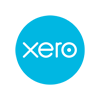4 record-keeping steps for freelancers and the self-employed
According to a report from think tank the Institute for Public Policy and Research (IPPR), the UK is the self-employment capital of Europe; over the past 13 years, the number of self-employed has surged by 1.5 million, and today there are 4.5 million people – 15 per cent of the labour force – working for themselves.
Self-employment can be hugely rewarding, but it also brings challenges, including the necessity for accurate record keeping and tax reporting.
Register
It is essential to register with Her Majesty’s Revenue and Customs (HMRC). If you are trading as a limited company, you will need to register your new company with Companies House. If you are operating as a sole trader, you can register directly with HMRC and sign up for self-assessment at the same time.
Get the right tools
Many freelancers and small business owners are familiar with the panicky feeling of wading through bundles of paperwork and unsorted receipts as the tax returns deadlines loom. While it is perfectly possible to get by with no more than pen and paper, it is vital that you are organised; the use of technology in accountancy, together with record keeping, helps to streamline the process and minimises the chance of costly errors.
This will become even more important as the government’s Making Tax Digital strategy comes into effect, taking all tax reporting online and introducing quarterly reporting.
Separate your finances
It is important to keep your professional and personal finances separate. Many households have different income streams, including salaries of spouses or other family members, benefits like tax credits, shares, rental income and interest on savings. Household expenses should be kept separate from business expenses.
One way of doing this is to open a business bank account, although there may still be areas where professional and personal finances overlap, such as allowable expenses for using a room in your home as an office.
Track your costs
Most businesses incur a wide range of different costs, many of which can be counted as allowable expenses against your profits and eventual tax bills. From the cost of building a website to that of fuel and postage directly related to your business, it is important that you accurately record every legitimate expense.






